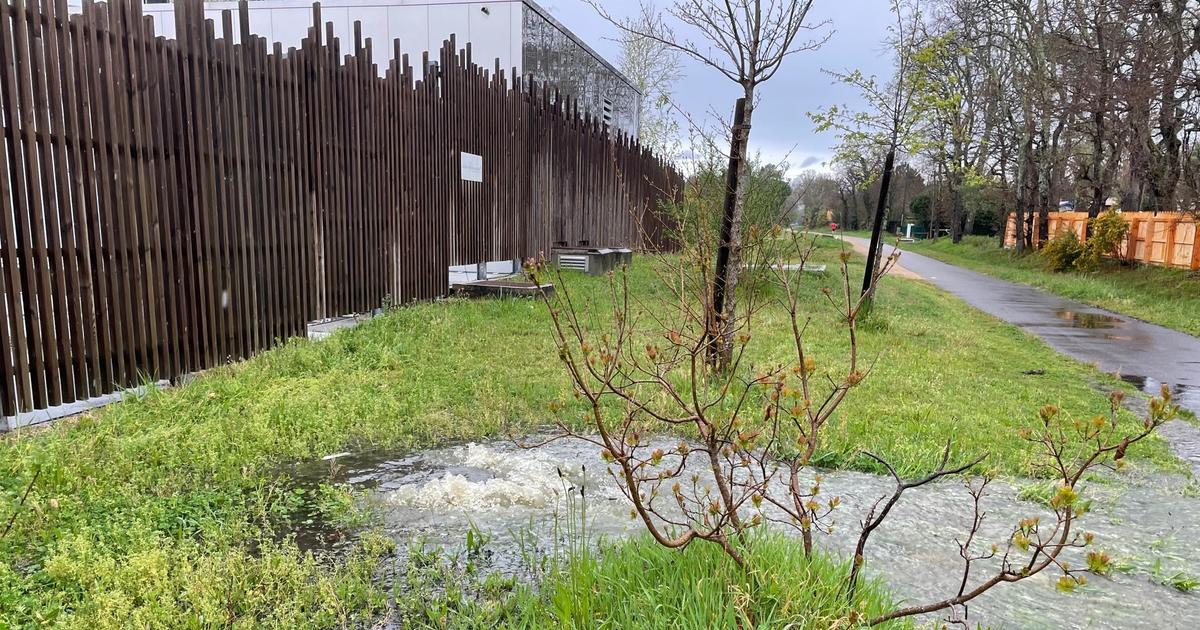Le Figaro Bordeaux
In the Ferme de Taussat district of Lanton on the Arcachon Basin, residents are subjected to
the “hell”
of the torrential rains which have hit the Gironde over the last six months. Neighboring one of the pumping stations which should regulate the Arcachon Basin wastewater network, their streets have been flooded with wastewater since Friday and for the third time since October.
“The most important thing is not that I have had no water or toilets for five days... The real problem is that this sewage water flows into a ditch which leads to the sea,”
warns a resident who adjoins the flooded cycle path.
Nauseous odors, fear of Escherichia coli contamination and toilet paper debris in the street... Virginie Malet, opposition representative and resident of this housing estate, is sounding the alarm, exasperated.
“The locals are abandoned while the oysters are pampered and put in clean water. We just ask to be notified when the sewers are out of control. There are still people who cross this sewage with strollers thinking it is rainwater.”
Worried about the
“health risk”
that these repeated excesses pose to residents, she denounces a
“chronic and systemic”
failure , highlighted by the oyster crisis in December, and calls for
“an end to omerta”
so that
“the responsibility for ensuring respect for public health is assumed”
.
Also read “My ancestors arrived in 1878”: in Lège-Cap-Ferret, the village of L’Herbe perpetuates the oyster farming tradition
Retention basins
And for good reason: the intercommunal union of the Arcachon Basin (Siba), in charge of wastewater management, must rectify the situation. Unable to contain the overload of the Titoune retention basin (also located in Lanton and wrongly discharged in the forest until a judicial ban pronounced on Tuesday), it was the valves of the pumping station which were opened.
“This issue has recently come into the spotlight, but it has always existed. The original sin is the management of rainwater which works with infiltration on the plot
,” underlines Thierry Lafon. According to the president of the Arcachon Basin Water Defense Association (Adeba), this method is not suitable for the territory which is characterized by soil already saturated with
“flush water tables”
and therefore unable to absorb heavy precipitation.
“Whether we like it or not, it is an exceptional event which has led to this situation”
, tempers Marie Larrue, the mayor of Lanton. The latter nevertheless admits that
“the right decisions must be made”
because the phenomenon is expected to recur in the future. Vice-president of Siba due to her position, the first magistrate of the municipality underlines the need for solidarity among the mayors of the territory.
“We collect wastewater over 4,000 square kilometers from Médoc to Landes. The surrounding municipalities must also create retention basins and everyone must take their part
,” insists the elected official, emphasizing that Lanton is precisely singled out because she agreed to install the pumping station and the Titoune basin.
As for oysters, whose tasting cabins have just reopened, Thierry Lafont, who is also an oyster farmer, insists on the return of the precautionary principle. The shellfish are purified in pools of filtered sea water for at least two weeks before being served on the terrace. A longer time than the ordinary procedure and
“more restrictive”
management , which could nevertheless allow the profession, already suffering, to avoid a new summer crisis.

